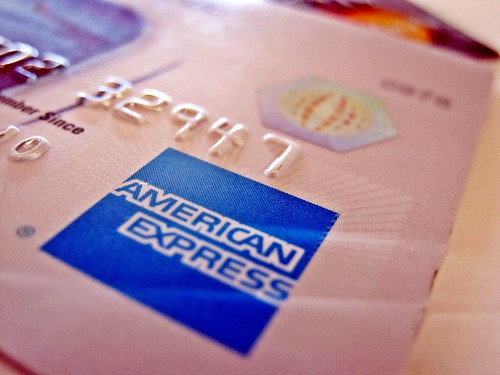Nowadays, the economy is not in very good shape. A lot of people with no jobs find themselves in debt. Too much debt can lead to bankruptcy and all of its ill effects. Continue reading this article for information about bankruptcy and whether it is the right choice.
Credit History
Make sure that you understand everything you can about personal bankruptcy by visiting websites that offer information. The U.S. Department of Justice, the American Bankruptcy Institute and the National Association of Consumer Bankruptcy Attorneys, all provide valuable information. The greater your body of knowledge, the better prepared you will be to make the decision of whether or not to file and to make certain that if you do file, the process is a smooth one.
Try to make certain you are making the right choice prior to filing your petition. You have better options. For example, you could try credit counseling. Since your credit history will forever note the bankruptcy, you want to make sure that you have tried everything else before you take an action such as this, in order to minimize the effect it will have with regard to your credit history.
When it appears likely that you will file a petition, do not start spending your last remaining funds on debt repayment. Do not tap retirement accounts unless there is no other alternative. While dipping into your savings is likely to be necessary, avoid wiping it out completely to prevent leaving yourself with little financial security in the future.
Before undertaking the bankruptcy process, ensure you have made the correct decision. You have other choices, including consumer credit counseling. Bankruptcy permanently affects your credit, so avoid filing until you have exhausted all of your other options.
After filing for bankruptcy, you could have trouble acquiring unsecured credit. If this happens to you, think about applying for a couple of secured credit cards. Using a secured card not only helps to rebuild your credit, but it also keeps you from going more in debt with credit card bills. After using a secured card for a certain amount of time, you might be offered an unsecured card once again.
When you do meet with a lawyer make sure that they answer all of your questions and that they do not charge you for consultation alone. You can meet with a few lawyers before deciding on one. Most lawyers provide a free initial consultation. Do not make any final decisions until every question you have has been answered. It’s isn’t necessary to make a choice right away. Take your time, and schedule consultations with more than one lawyer.
Before pulling the trigger on bankruptcy, be sure that other solutions aren’t more appropriate for your case. For example, consumer credit counseling services can often help you figure out a workable repayment plan with creditors. You might also be able to negotiate lower payments yourself, but make sure that you get written records of any debt modifications to which you agree.
Seek a less serious option prior to filing for bankruptcy. For example, consumer credit counseling programs can help if your debt isn’t too large. You could even negotiate for lower payments. However, you should ensure that you always obtain a written record of all the changes to your debt that you’ve agreed to.
Chapter 13
Many bankruptcy lawyers offer free consultations, so go to several before choosing one. Make sure you meet with a licensed attorney rather than a paralegal or assistant, because it is illegal for these people to give legal advice. Seeking out different attorneys is all part of the process until you find someone that you can trust.
Learn what you can about Chapter 13 bankruptcies. Chapter 13 bankruptcy is a good choice for people whose unsecured debts amount to lower than $250,000 and who receive a regular income. You can secure your home under Chapter 13 and pay your debts with a payment plan. Typically, this goes on for roughly three to five years, and once this time has expired, your unsecured debt is eliminated. Bear in mind that if you miss a single payment that is due under your plan, the entire case will be dismissed by the Court.
Before you file for bankruptcy, make sure you understand your rights. Do not take debt collectors at their word when they tell you that a specific debt can’t be discharged through bankruptcy. Only a few debts, including child support and tax liens, are ineligible for bankruptcy. If you know that a debt can definitely be bankrupted, yet the collector still harasses you, file a report with the attorney general in your state.
After you have filed for bankruptcy, enjoy your life. The process of filing for bankruptcy can make people a nervous wreck. That stress can cause depression, if you don’t take care to avoid it. Life will get better after you finally get this situation over with.
Before filing for bankruptcy, you must be educated on the specifics of all bankruptcy laws. There are often laws prohibiting the transfer of money from the filer for a certain period preceding the bankruptcy filing. It’s also prohibted to run up debt on credit cards just prior to filing.
Know the laws and guidelines about bankruptcy before you formally file. There are many laws which govern bankruptcy; therefore, to protect your bankruptcy case, know the rules. Some mistakes in your papers can cause your case to be dismissed. Take time to research things related to personal bankruptcy before you move forward. The entire process will be much easier when you move forward with awareness.
It is still possible to get a mortgage or car loan, even if you are filing for Chapter 13 bankruptcy. There are extra hoops to jump through. You will need to secure the trustee’s approval for any new debt obligation. To show that you are responsible and prepared for the undertaking of a new loan, flesh out a full budget. Also, you need to be ready to say why you’re going to need the item.
Never take huge cash advances directly from your credit cards before you file for bankruptcy, since you know that all debts will be erased from these cards. If you were to do this you could be charged criminally with fraud, because the act is intended to rip off the company.
Even the economy is gradually getting better, many people still do not have a job. That said, it is possible to avoid bankruptcy even if you are having cash flow problems. This article should have given you some solid advice for staying afloat in tough times. No matter how bad things seem, there is hope for you, good luck.
Before you file bankruptcy, consider how you will pay off your debts. The laws regarding bankruptcy most often prevent you from paying back some creditors for up to 90 days before filing, and friends and family for up to one year. Know the laws prior to deciding what you are going to do.


